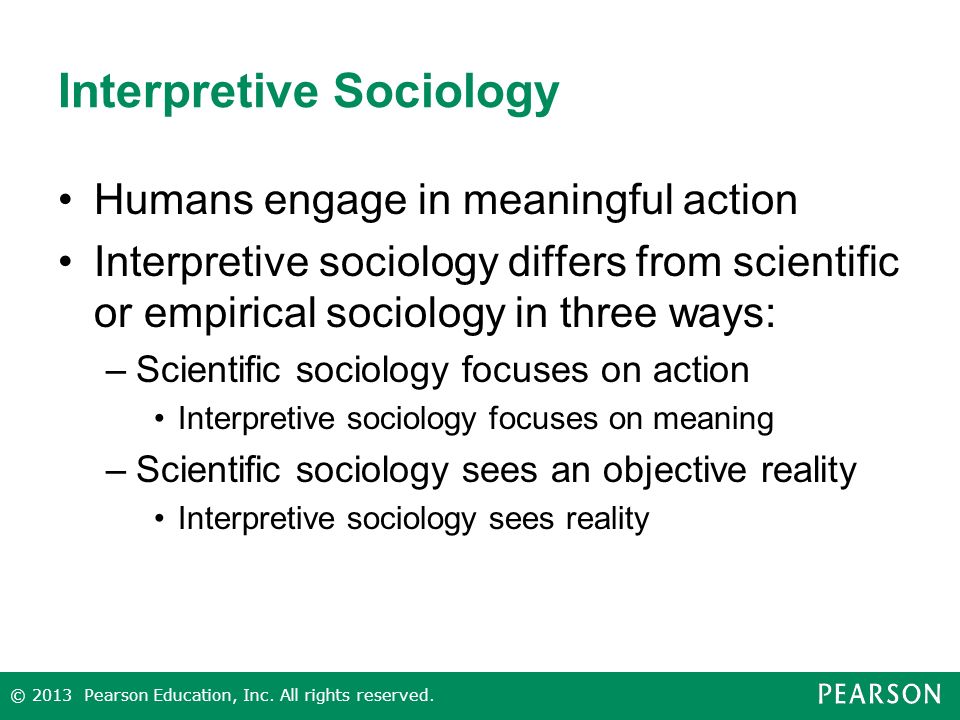
Relevance: Sociology I: thinkers: Max Weber
What is Interpretive sociology?
Interpretive sociology is an approach developed by Max Weber that centers on the importance of meaning and action when studying social trends and problems. This approach diverges from positivistic sociology by recognizing that the subjective experiences, beliefs, and behavior of people are equally important to study as are observable, objective facts.

Max Weber’s Interpretive Sociology
Interpretive sociology was developed and popularized by Prussian founding figure of the field Max Weber. This theoretical approach and the research methods that go with it is rooted in the German word verstehen, which means “to understand,” in particular to have a meaningful understanding of something.
To practice interpretive sociology is to attempt to understand social phenomena from the standpoint of those involved in it. It is, so to speak, to attempt to walk in someone else’s shoes and see the world as they see it. Interpretive sociology is, thus, focused on understanding the meaning that those studied give to their beliefs, values, actions, behaviors, and social relationships with people and institutions. Georg Simmel, a contemporary of Weber, is also recognized as a major developer of interpretive sociology.
Why Action is more imporatant than External behaviour?
In interpretive sociology, the action is important rather than “inner state” or external behavior. “Action” means an understandable behavior towards “objects” which have a sense of being specified by some (subjective) meaning that it “has” or that is “meant”. In interpretive sociology the kind of action important is behaviour,
(1) that, in terms of the subjectively meant meaning of the acting person, is related to behavior of others;
(2) whose course is partially determined by meaning relatedness; and
(3) that can, therefore, on the basis of this (subjectively) meant meaning be intelligibly explained.
Interpretive sociology makes a distinction on the basis of meaning- relatedness. So the effective acts and emotional states such as a feeling of pride, dignity, envy that are compatible to the course of action but indirectly relevant in terms of their subjective meaning are related with the external world, especially to the actions of the other. It focuses solely on inner aspect “from within” which means that it does not enumerate it physical or psychical element. It is important that process and event provide the decisive condition-reason for the action, not just conditions and consequences.
How it is Different From positivist sociology?
Interpretive sociology differs from positivist sociology in three ways:
- Interpretive sociology deals with the meaning attached to behavior, unlike positivist sociology which focuses on action.
- Interpretive sociology sees reality as being constructed by people, unlike positivist sociology which sees an objective reality “out there”.
- Interpretive sociology relies on qualitative data, unlike positivist sociology which tends to make use of quantitative data.

For more such notes, Articles, News & Views Join our Telegram Channel.
Click the link below to see the details about the UPSC –Civils courses offered by Triumph IAS. https://triumphias.com/pages-all-courses.php

